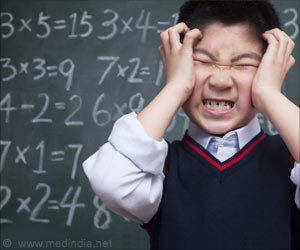Steve's problem - FICTION - An educational story
Nine year old Steve hated school and with good reason. He was failing most of his subjects and was almost certain to have to repeat grade four. His parents and teachers were puzzled by the boy’s learning problems. Repeated testing showed above-normal intelligence. The child was well behaved, attentive and tried hard. His hearing and eyesight were normal and there was no evidence of a neurological problem.
Steve’s performance in reading, history, art and sports were average, but he was failing science, spelling and maths. The last subject was Steve’s special nemesis, a difficulty reflected in all his achievement tests. His most recent tests put Steve’s reading ability slightly above grade level, spelling slightly below and his maths scores in the grade two range.
At the urging of school officials, Steve’s parents took him for an evaluation by a psychologist who specialized in learning disorders. The psychologist’s report described Steve as ‘a quiet but personalbe boy who expresses concern about his schoolwork and says he “just really hates to go to school”.’ Further probing again identified maths as the problem. Steve explained that the numbers get “all jumbled up”. When the psychologist gave Steve the simple problem of adding three and four, the boy laboriously counted out the answer on his fingers, gave the correct oral answer, but then wrote down two instead of seven. Mathematical concepts such as multiplication and division were beyond Steve’s grasp, even though his teacher had spent extra time trying to teach them.
After a careful evaluation of Steve’s other academic skills, the psychologist concluded that the boy had what is classified as a developmental maths disorder. The criteria for such a diagnosis include maths skills which are consistently below intellectual ability and which interfere with overall academic performance.

Some children with developmental maths disorder also have reading, behavioural and coordination problems.
Because Steve’s difficulties did not extend to these areas, the psychologist thought that intensive remedial instruction might help. He urged Steve’s parents to look into a multimedia maths programme which their son could use on their home computer. He also suggested enlisting a child a year or two older than Steve as a maths tutor. “Some children who have problems learning from an adult do much better with a peer as a teacher”, the psychologist explained. “This is why it’s vital to integrate children with learning disorders into regular classes.”
The psychologist cautioned Steve’s parents not to expect overnight miracles, stressing that no one fully understands why some children have so much trouble learning maths. “Some seem to outgrow the problem,” he said, “but others always have difficulty with numbers.”
In Steve’s case, his determination and the support of his parents and teachers helped considerably. The computer maths programme turned out to be not only educational, but also fun. Steve’s teacher arranged for a grade five boy to tutor him three times a week.
Although progress was generally slow, his teachers felt that it was significant enough for Steve to advance to the next grade. In return, he agreed to spend part of the summer holidays continuing his remedial work so that he could keep up with his grade five classmates.

To listen to the audio version of this article click on the play image.

Brought to you by @tts. If you find it useful please consider upvoting this reply.